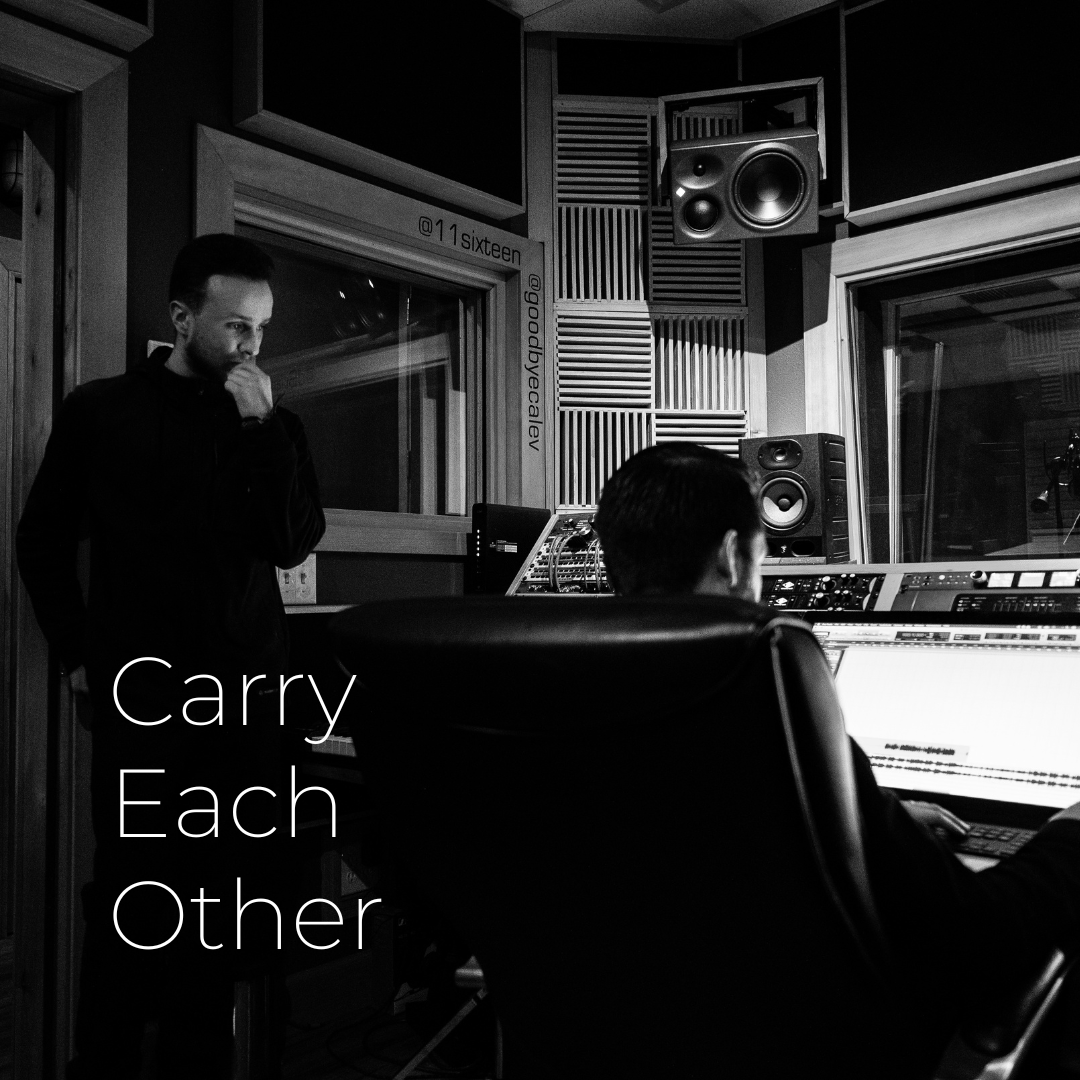
We get to carry each other...
— U2, "One"
Director Davis Guggenheim's 2011 documentary film entitled From the Sky Down looks back to 1990 and the making of Achtung Baby, the seventh studio album of the Irish rock band U2. To set the stage a little, after their success in the 1980s, the group was trying to reinvent themselves in the new decade but struggling to find direction. Seeking to capture some new dynamic energy, they traveled to Hansa Studios in West Berlin just 150 meters from where the Berlin Wall had fallen only months before in 1989. Berlin, perhaps in its own in-between space that winter, proved only cold and bleak, and the band's troubles continued.
The group's lead singer—the person the world knows as Bono—framed their faltering reinvention efforts like this:"You have to reject one expression of the band to get to the next, and in between you have nothing." So, in this vulnerable, uncertain, liminal place, the Hansa sessions were proving volatile—fraught with conflict over where U2 was and whether it could or even should go on. Floundering personally, relationally, and creatively after more than a decade together, the band members were drifting apart, and a break-up seemed inevitable. "It wasn't us against them," Bono said. "It was more each one for himself—which betrays the whole concept of a band." U2's guitarist Dave Evans, nicknamed Edge, recalled, "Everyone began to walk differently, converse differently, carry their cup of tea differently—we all sensed the tension, the doubt; each of us was kind of retreating."
Laboring through a song called "Sick Puppy," which was perhaps a little too on the nose for where they were, they continued to stumble along until something shifted subtly. As they worked, "Sick Puppy" began to morph into a new, far more vigorous tune called "Mysterious Ways," which interestingly enough concerns the mystical work of the Holy Spirit. While Edge was roughing out a bridge from one part of the piece to next, the band's longtime producer, Daniel Lanois, heard something distinctive in one of the chord progressions that intrigued him. He asked Edge to combine it with another little riff that had arisen as "Mysterious Ways" was trying to take wing.
Lanois quickly moved the band into what they called the big room at Hansa, a larger studio, to see if a new song might materialize. Edge began to fold the two progressions together into one. Bono followed along and began to sing, not lyrics, but with what his bandmates call "Bono-ese"—mumbling vocalizations and notes, experimenting with emotional words, humming along at times within the rudiments of the emergent song. At one point on the engineer's raw tapes, Bono is heard saying, "Give me an acoustic guitar at the speed of light." With it in his hands and strumming another layer to what was coming together, he continued to sing. "He was calling out chords," U2's bass player Adam Clayton remembered, "trying to figure out where the fertile ground was melodically for him." Lanois recalled the experience, as well. "When you're in that moment of inception, there's a momentum that takes you to another place."
They'd come to Berlin hoping for some magic, and it was happening. And though what was being expressed in this new song was sonically bittersweet, still "there was something eternal, 'upful,' joyful in the melody," Adam said. It was all organic to the struggle, yet transcended it. "Nothing was going right, and we were suddenly presented with this gift that just kind of arrived," Edge said. The name of Guggenheim's documentary speaks to this very phenomenon—something that can't be orchestrated or quite grasped but responds to our exertions, descending from the sky, from heaven to earth, God to us.
U2 went on to finish their album, which Rolling Stone recently placed at #124 on its list of the 500 greatest albums of all time. (I'd personally rate it higher, but people say I'm a little biased.) The song created in that session in Berlin is called, "One." It's sometimes played at weddings, though it's more a breakup song than a romantic one. More precisely, it's really about surviving. And it ends with a solution on the matter: "We get to carry each other. Carry each other."
When we're struggling, when things are bleak, when we're in the midst of a season of dread and dryness, when we are in a place of bitter cold, when tension and doubt put us in retreat—look, listen, and even stare into the abyss. Breathe, attuned to the subtleties inside the darkness, inside the silences. Something will emerge. Something will descend. Until it does, stay with your bandmates—family, friends, church, community.
We get to carry each other.
Carry each other. Amen.
— Greg Funderburk





